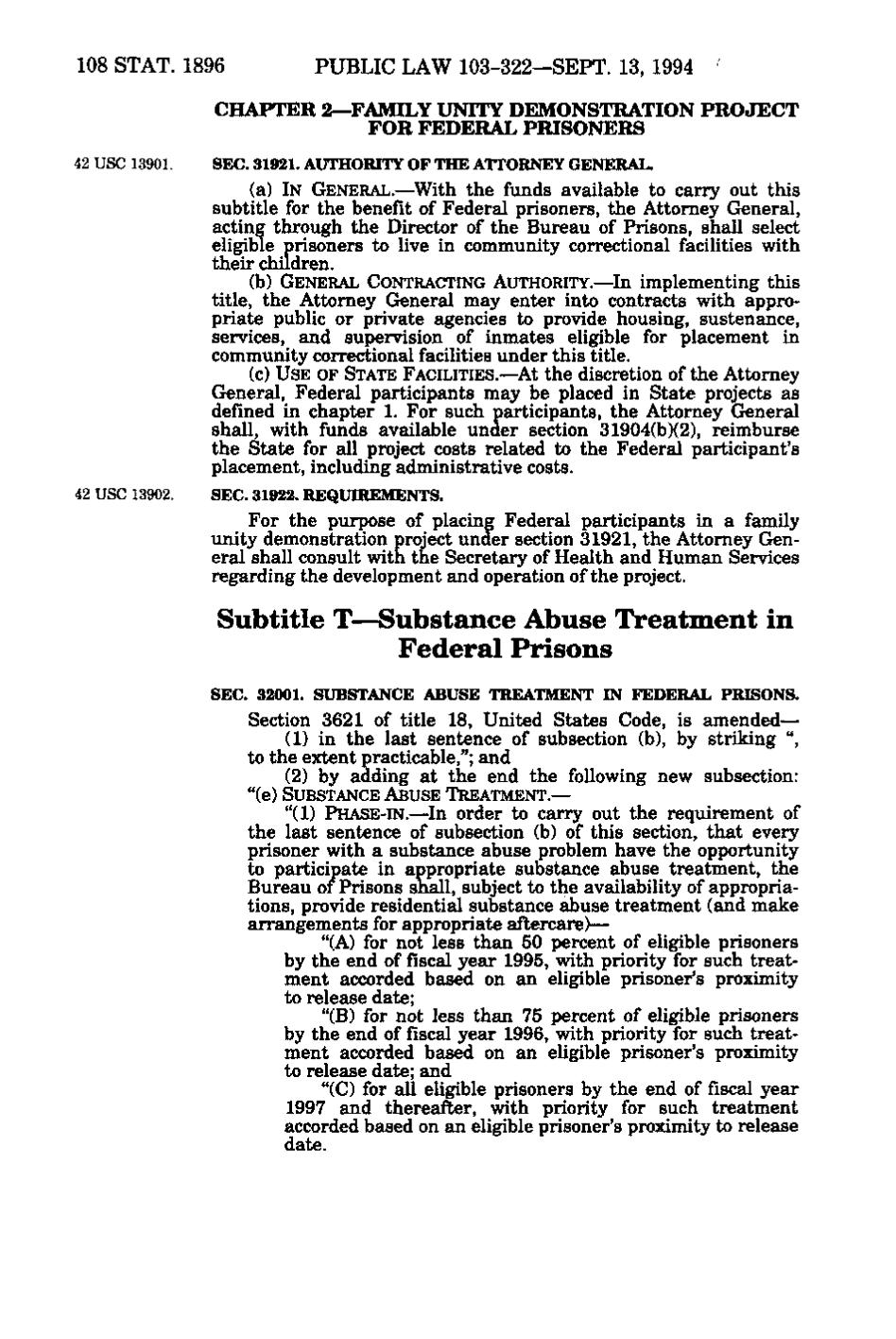108 STAT. 1896 PUBLIC LAW 103-322—SEPT. 13, 1994 ' CHAPTER 2—FAMILY UNITY DEMONSTRATION PROJECT FOR FEDERAL PRISONERS 42 USC 13901. SEC. 31921. AUTHORITY OF THE ATTORNEY GENERAL. (a) IN GENERAL.—With the funds available to carry out this subtitle for the benefit of Federal prisoners, the Attorney General, acting through the Director of the Bureau of Prisons, shall select eligible prisoners to live in community correctional facilities with their children. (b) GENERAL CONTRACTING AUTHORITY.— In implementing this title, the Attorney General may enter into contracts with appropriate public or private agencies to provide housing, sustenance, services, and supervision of inmates eligible for placement in community correctional facilities under this title. (c) USE OF STATE FACILITIES.— At the discretion of the Attorney General, Federal participants may be placed in State projects as defined in chapter 1. For such participants, the Attorney General shall, with funds available under section 31904(b)(2), reimburse the State for all project costs related to the Federal participant's placement, including administrative costs. 42 USC 13902. SEC. 31922. REQUIREMENTS. For the purpose of placing Federal participants in a family unity demonstration project under section 31921, the Attorney General shall consult with the Secretary of Health and Human Services regarding the development and operation of the project. Subtitle T—Substance Abuse Treatment in Federal Prisons SEC. 32001. SUBSTANCE ABUSE TREATMENT IN FEDERAL PRISONS. Section 3621 of title 18, United States Code, is amended— (1) in the last sentence of subsection (b), by striking ", to the extent practicable,"; and (2) by adding at the end the following new subsection: "(e) SUBSTANCE ABUSE TREATMENT.— "(1) PHASE-IN.— In order to carry out the requirement of the last sentence of subsection (b) of this section, that every prisoner with a substance abuse problem have the opportunity to participate in appropriate substance abuse treatment, the Bureau of Prisons shall, subject to the availability of appropriations, provide residential substance abuse treatment (and make arrangements for appropriate aftercare)— "(A) for not less than 50 percent of eligible prisoners by the end of fiscal year 1995, with priority for such treatment accorded based on an eligible prisoner's proximity to release date; "(B) for not less than 75 percent of eligible prisoners by the end of fiscal year 1996, with priority for such treatment accorded based on an eligible prisoner's proximity to release date; and "(C) for all eligible prisoners by the end of fiscal year 1997 and thereafter, with priority for such treatment accorded based on an eligible prisoner's proximity to release date.
�
